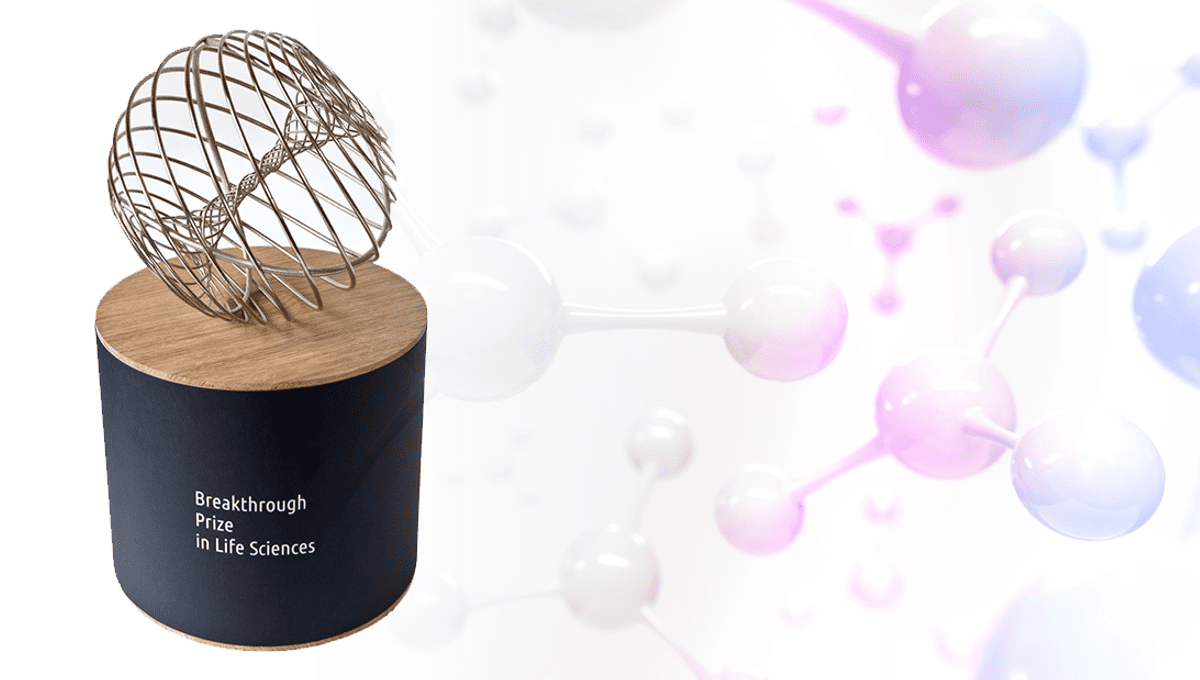
The winners of the 2023 Breakthrough Prizes in Fundamental Physics, Life Sciences, and Mathematics have been announced together with several other early career awards given by the Breakthrough Prize. Of the five main prizes, three are awarded in Life Science, one in fundamental Physics, and one in Math, each worth $3 million for a total of $15 million.
The first Breakthrough Prize in Life Sciences this year has gone to Demis Hassabis and John Jumper from DeepMind for their work using AI methods to work out the structure of proteins. The second prize went to Clifford P. Brangwynne and Anthony A. Hyman for working out how the inside of a cell organizes itself.
The third prize has been awarded to Emmanuel Mignot and Masashi Yanagisawa who discovered – independently from each other – the causes of narcolepsy.
“I have to say that I never received such recognition. When I first started to work on this disease, nobody really cared that much about it,” Professor Mignot, from Stanford University told IFLScience. “I’ve been very lucky in my life to be able to make a difference.”
And the difference has been significant. People with narcolepsy not only have trouble sleeping and staying awake but they can also suffer from temporary paralysis when they laugh. In the 1990s, Mignot began working with narcoleptic dogs to work out the cause of it. The work done in his lab – and that of Yanagisawa – led to the recognition of its causes.
Narcolepsy is a disease of the brain. A growing body of evidence suggests it may be an autoimmune disorder. Immune cells attack the cells that produce orexin, a chemical that regulates wakefulness.
Since Mignot and Yanagisawa’s discovery, the approach to treating sleep disorders has changed and drugs are now being studied that could make all the symptoms disappear. The drugs are in clinical trials so they are not quite ready yet, but current data are extremely promising. And Mignot is very optimistic: “the revolution is on the verge of happening.”
Mignot has worked with hundreds of patients over the last two decades and he continues to study narcolepsy as well as other autoimmune diseases of the brain.
The Breakthrough Prize in Mathematics has been awarded to Daniel A. Spielman for his many contributions to theoretical computer science and mathematics. Meanwhile, the Breakthrough Prize in Fundamental Physics went to Charles H. Bennett, Gilles Brassard, David Deutsch, and Peter Shor for their work in quantum information.
Their work has laid the foundations for what has now become a vast variety of fields from quantum cryptography to quantum teleportation. These pioneers created the basis and more of the theory of quantum information – the theory at the core of how quantum computers might work one day.
“Quantum computers are not overall superior to classical ones. They’re only superior to them for certain applications. That is, when they are executing certain quantum algorithms, they can do better,” Professor Deutsch, from the University of Oxford, told IFLScience. “And it is thought, and I think I agree, that some of those things that quantum computers can do tremendously better than any classical computer are potentially useful.”
Quantum computers are expected to be able to conduct analysis and simulations with a speed that could revolutionize many technical fields from material science to medicine.
Over the last decade, Professor Deutsch has worked on a radical new way to explain fundamental physics: Constructor Theory. Physical laws in this theory are expressed in terms of physical transformations that are possible versus those that are impossible. An example would be comparing how a drop of ink dissolves in a glass of water (possible) versus ink suddenly clumping up into a single drop and popping out of the water (impossible).
“Constructor Theory requires, just like quantum theory did, jarring changes in how one looks at the world. And for that very reason, I expect it to reveal new insights into what the universe is like… what it’s all about,” Professor Deutsch told IFLScience.
There are also early-career awards given out together with the main prizes. This year, there are six New Horizons prizes each worth $100,000 given to 11 physicists and mathematicians.
Three mathematics prizes were given to Ana Caraiani, Ronen Eldan, and James Maynard. Two of the physics prizes went respectively to David Simmons-Duffin and Anna Grassellino. The final physics prize was shared between Hannes Bernien, Manuel Endres, Adam M. Kaufman, Kang-Kuen Ni, Hannes Pichler, and Jeff Thompson for their work creating optical tweezer arrays that allow us to manipulate individual atoms.
The Breakthrough Prize also awards the Maryam Mirzakhani New Frontiers Prize and the New Horizons Prizes in Mathematics and Physics. The Maryam Mirzakhani New Frontiers Prize is awarded to early-career women mathematicians and this year the winners are Maggie Miller, Jinyoung Park, and Vera Traub. Each received $50,000.
Source Link: Sleep Disorders And Quantum Cryptography Win Big At The Breakthrough Prizes 2023